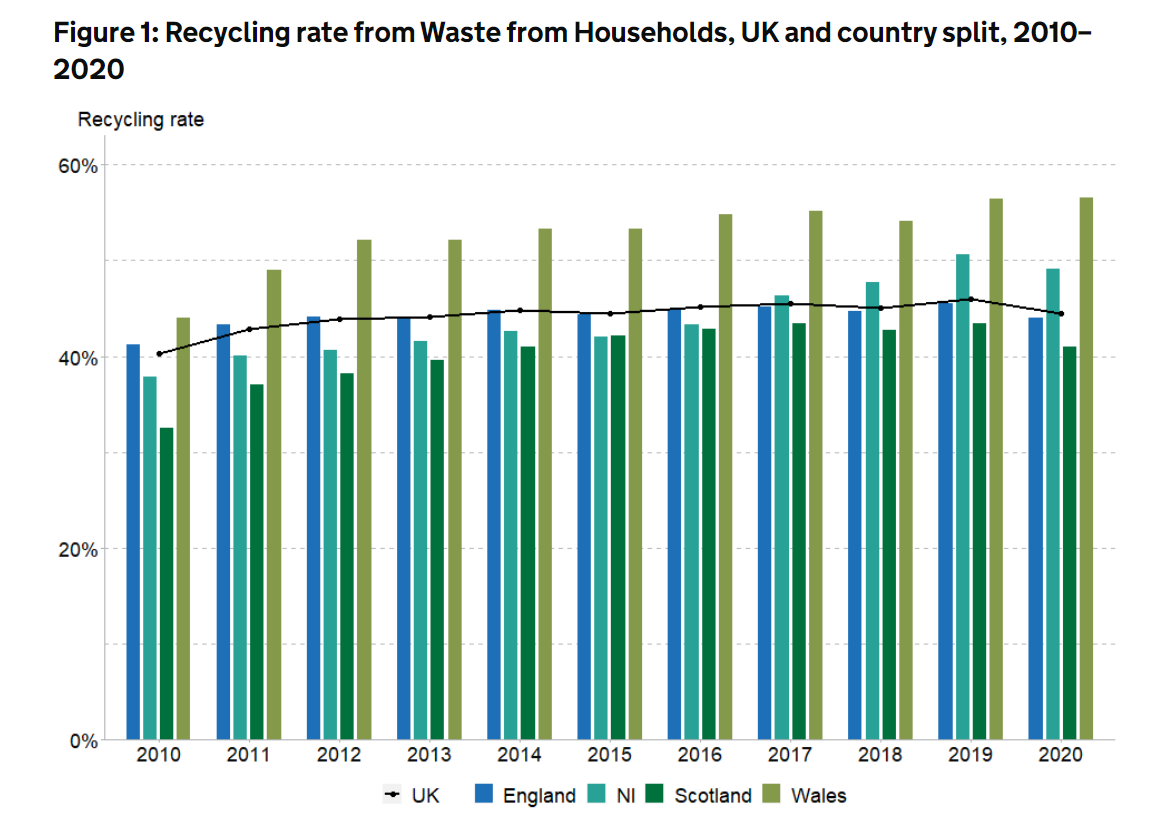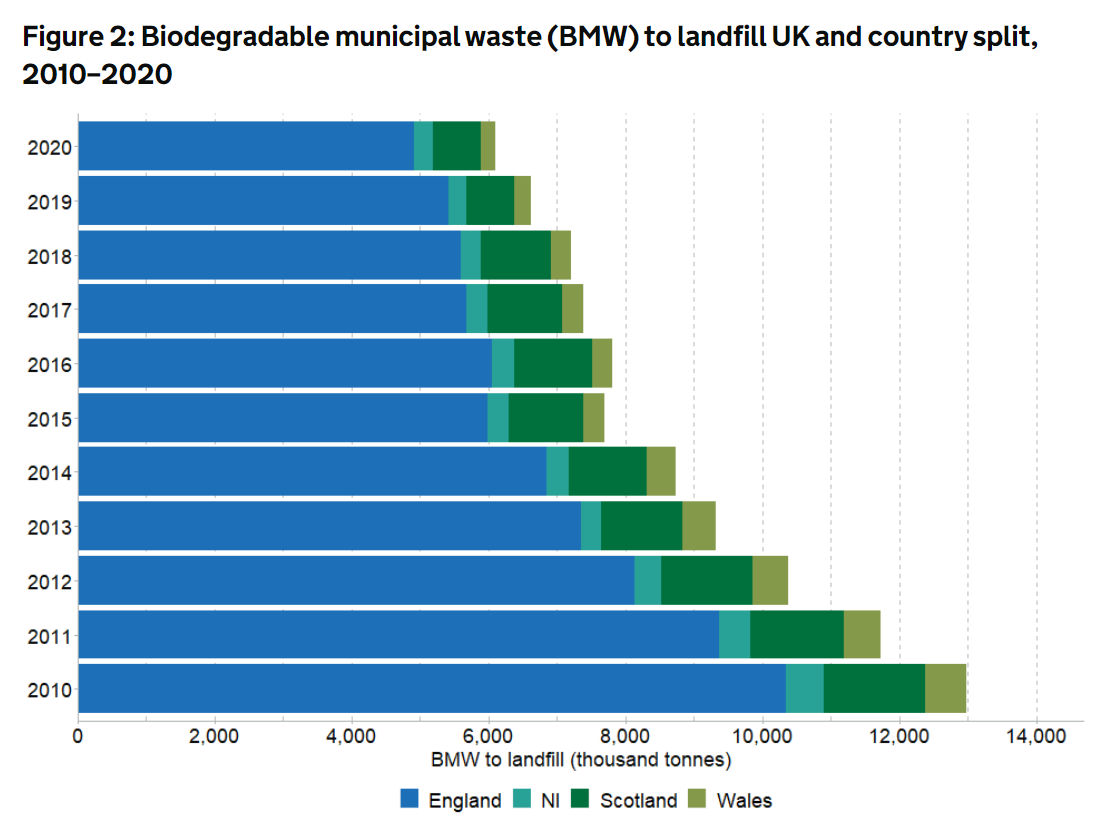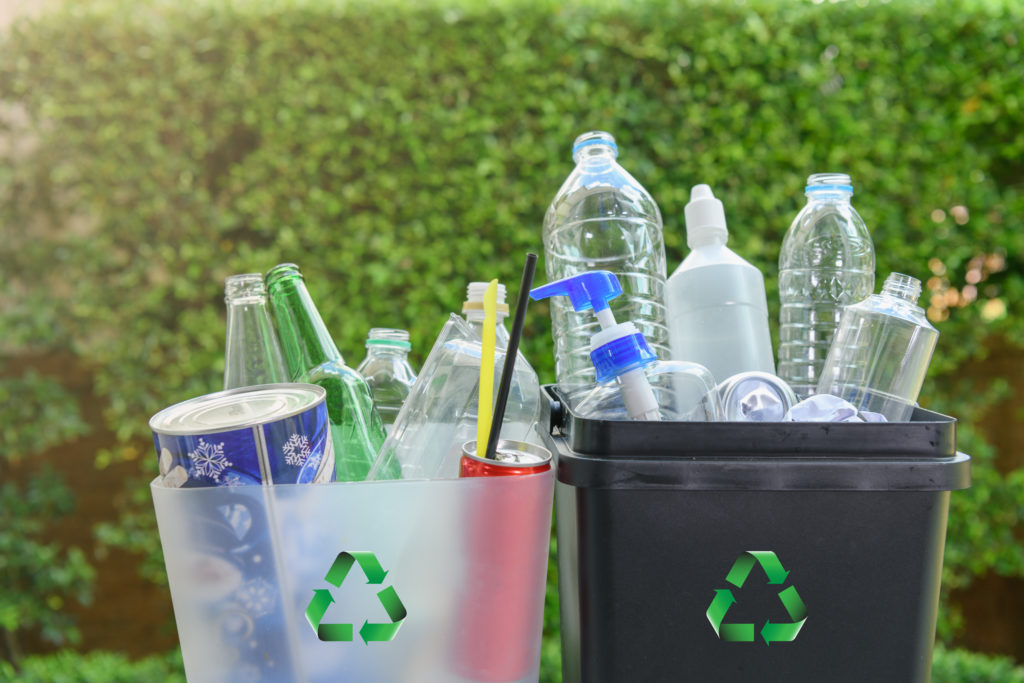The statistics for the 2020 calendar year were published by Department of Environment, Food and Rural Affairs (Defra) this morning (11 May).
Previously, they were sent to the European Commission for approval, and give a clearer indication of the recycling rate of all four nations.
The report showed that the recycling rate for household waste decreased in all UK countries except Wales in 2020. Scotland had the lowest rate with 41%, followed by England with 44.0%, 49.1% in Northern Ireland and 56.5% in Wales.
Across the EU, this would rank the UK 10th for recycling in 2020, according to data published by the European Commission last month, up from 11th in 2019.
The reporting period for some of these statistics coincides with the COVID-19 pandemic and the national lockdowns, Defra explained.
The effect on local authorities varied, but “generally there were disruptions and some cancellations of kerbside collections of recycling and garden waste. There were also widespread closures of Household Waste Recycling Centres (HWRCs)”.

Measure
The recycling rate is calculated using the overall waste from households figure, “the agreed harmonised UK measure used to report household recycling”.
According to the statistics, UK’s total generation of household waste was 27 million tonnes in 2020, an increase of 2.1% from 2019. Of this, England is responsible for generating 22.6 million tonnes, which forms 84% of the UK total.
Landfill
Across the UK, estimates for biodegradable municipal waste (BMW) to landfill have been calculated using a UK wide approach in accordance with relevant legislation.
BMW is the fraction of municipal waste that will decompose within a landfill to produce methane, a potent greenhouse gas.
The UK sent 6.1 million tonnes to landfill in 2020. The report outlined that UK tonnages to landfill have reduced each year since 2010, except in 2016 when there was a small increase. England is responsible for 81% of UK’s BMW sent to landfill, generating 4.9 million tonnes of the total in 2020.

Packaging
The dataset also included the UK’s packaging recycling rate for 2021.
Provisional figures for 2021 show that 63.2% of UK packaging waste was either recycled or recovered. This is a slight increase from the revised 2020 figures that were at 63.1%.
The report said: “Recycling accounted for 8.0 million tonnes of the 12.6 million tonnes of packaging waste arisings in 2021. Paper and cardboard had the highest waste arisings, at 5.4 million tonnes.”
Commercial data
As in previous years, the document referred to uncertainty in gathering data for the commercial and industrial (C&I) waste sector.
The latest estimates for England only, indicate that waste generation was around 33.8 million tonnes in 2020, a decrease of 9% since 2019.
Overall
In terms of overall waste generation, including C&I, household and construction, the data has not been updated since last year’s report.
In 2019, there were 222.2 million tonnes of waste overall (see letsrecycle.com story).
Europe
The data comes soon after statistics for 2020 were published on 26 April by the European Commission’s data arm, Eurostat.
This showed the UK would have ranked 10th in Europe in 2020.
Germany continued to lead the pack with 67%, followed by Slovenia at 59.3% and Netherlands at 56.8%.
Germany also ranked first in total waste arisings, having generated 52.56 million tonnes in 2020. France was next with 36.15 million tonnes. Spain followed with 21.5 million tonnes of overall household waste. The UK would have ranked third with 27 million tonnes.









Subscribe for free